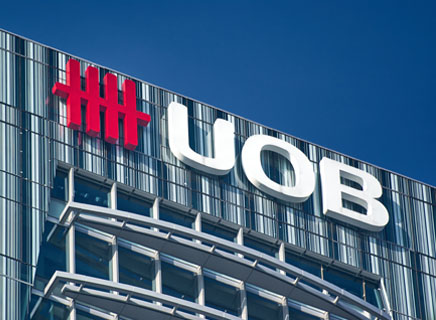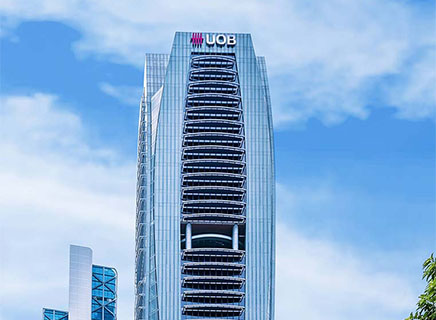News Release - 15 April 2021
UOB Malaysia helps contribute to the country’s transition to cleaner energy by supporting power plants with lower environmental impact
Bank plays active role as it steps up financing for natural gas and solar projects to help meet Malaysia’s energy demand in a sustainable manner
Kuala Lumpur, Malaysia, 15 April 2021 – On the back of Malaysia’s increasing electricity demand, UOB Malaysia is helping to contribute to the country’s transition to cleaner energy through its support of power plants with lower environmental impact. To increase the national power capacity mix, the Bank is committed to supporting development of projects that use efficient sources of energy, such as natural gas and renewables.
Power generation in the country is projected to grow by an average of 3.2 per cent annually to reach 47.8 gigawatts by the end of 20281. The Klang Valley region accounts for the highest electricity demand in Peninsular Malaysia, and with its current supply deficit, the region relies heavily on the long-distance transmission of power from both the Northern and Southern regions in the Peninsular.
Ms Ng Wei Wei, Managing Director and Country Head of Wholesale Banking, UOB Malaysia, said, “With the central region seeing higher electricity consumption growth rates, there is a need to increase capacity through the construction of power plants that are more efficient and more sustainable. To this end, UOB Malaysia is committed to supporting projects that will help the country make the transition to natural gas and renewables.”
UOB Malaysia was a co-financier in a Commodity Murabahah Term Financing-i facility for the recently-announced 1,200 megawatt combined-cycle gas turbine power plant in Pulau Indah, Selangor. The project is a joint venture between Worldwide Holdings Berhad and Korea Electric Power Corporation. Upon completion in 2024, the power plant is expected to meet the demand in the Klang Valley region in a more sustainable manner. This is because a natural gas power plant has higher energy efficiency and emits 50 to 60 per cent less carbon dioxide per kilowatt-hour than a typical coal plant2.
Ms Ng said, “We are honoured to be part of the financing consortium for Selangor’s major power development plan that will generate more power for the residents in the central region of Peninsular Malaysia.”
Solar power to lead the way in renewable energy capacity mix in Malaysia
Gas and thermal power sources are expected to continue making up a significant proportion of the national power generation mix over the next seven years3. Nonetheless, UOB Malaysia believes that the country will continue to increase renewable sources in its energy capacity mix to 20 per cent by 20254, particularly solar power.
This projection is underpinned by the recent announcement of new power plant constructions under the Large Scale Solar (LSS) 4 programme by the Energy Commission of Malaysia. Solarvest Holdings Berhad, an engineering, procurement, construction and commissioning (EPCC) partner in UOB Malaysia’s U-Solar programme5, was one of the LSS4 successful bidders6. UOB Malaysia also supported two solar power plant projects – the Sinar Kamiri Power Plant located in Sungai Siput, Perak and the Kenyir Gunkul Power Plant located in Dungun, Terengganu – under the previous LSS programmes.
Ms Ng said, “Although gas and thermal power sources continue to power the country’s electricity demand substantially, the future looks bright for the construction of solar power plant projects. We are positive that the solar power plant projects under the LSS programmes, including that by Solarvest’s under its successful bid, will further accelerate Malaysia’s pace of achieving its renewable energy capacity target.
“Through our U-Solar programme and financing of the Sinar Kamiri and Kenyir Gunkul solar power plants, we aim to encourage greater nation-wide adoption of green technology. This is in line with our commitment to forging a sustainable future for better businesses, lives and livelihoods and communities as we contribute to the nation’s long-term economic, social and environmental well-being.”
For more information on U-Solar, please visit www.UOBgroup.com/U-Solar.
1 Source: Fitch Solutions’ Global Market Insights forecast, 19 March 2021
2 Source: US Environmental Protection Agency Report 2018
3 Source: Global Data, 16 May 2019
4 Source: Ministry of Energy and Natural Resources Malaysia’s Electricity Supply Industry 2.0 programme launched in 2019
5 U-Solar is Asia’s first solar industry ecosystem that brings together both industry players and consumers to power the development and adoption of renewable energy across Southeast Asia.
6 Source: The Energy Commission of Malaysia announcement on 15 March 2021




